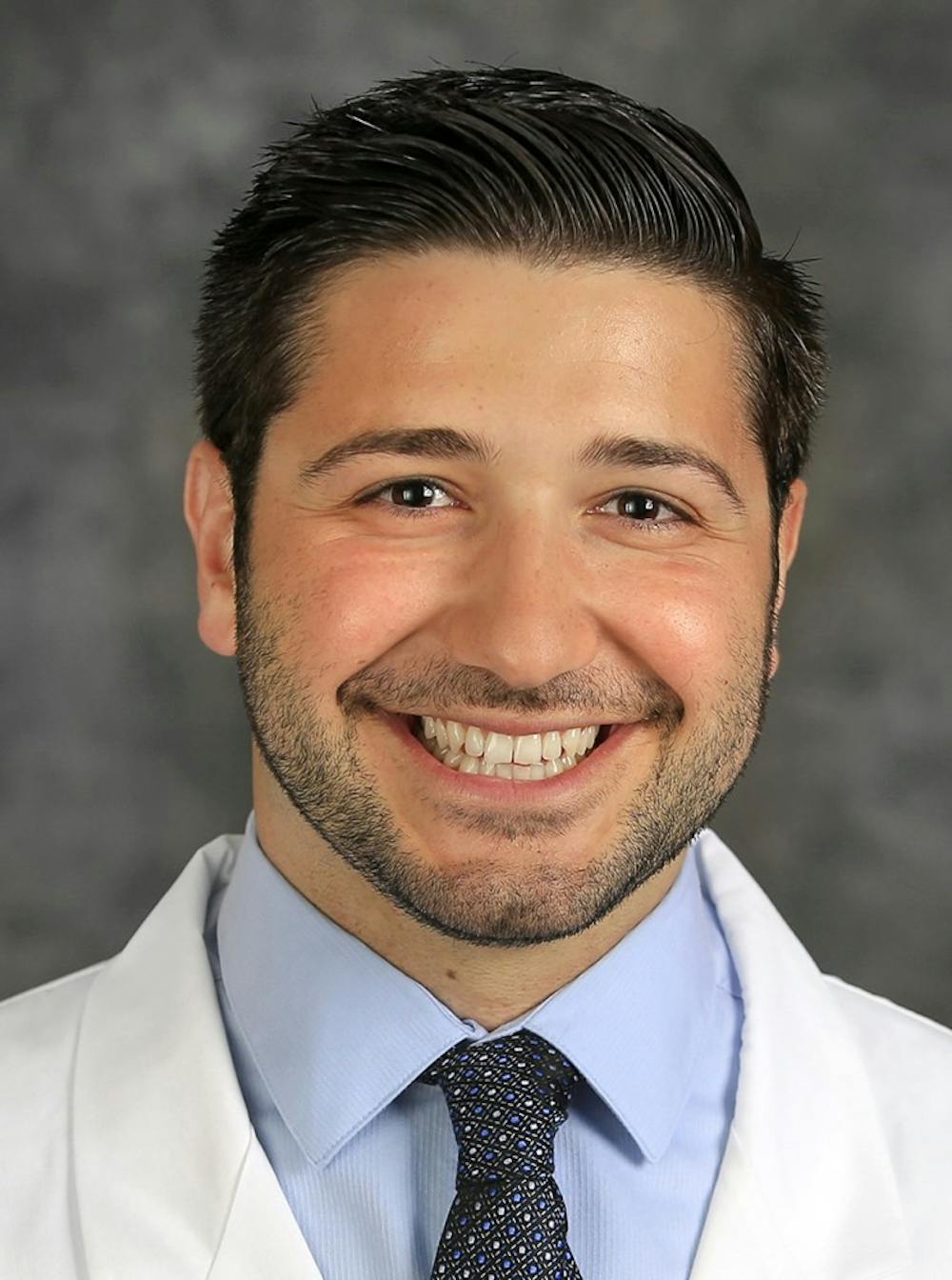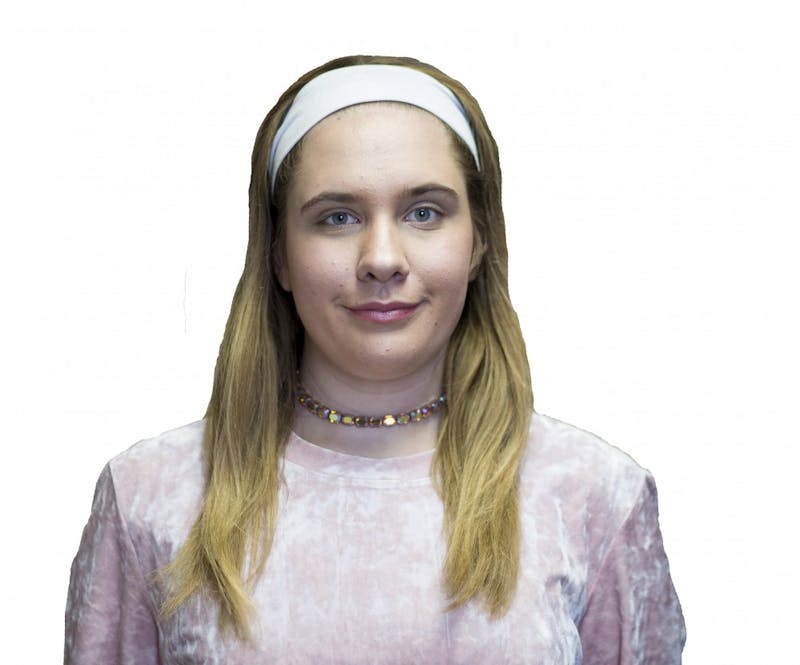College of Medicine students use grant for research initiatives
Two students from the Central Michigan University College of Medicine are using aid from a $3,000 student grant to battle health stigmas and misconceptions in rural communities.
The Student Award Program of the Blue Cross Blue Shield of Michigan Foundation aims to help aspiring doctors amend the health of Michigan residents through original research. In order to be eligible, medical and doctoral-level students must be attending Michigan universities and have an innovative research plan focusing on concerns of in-state communities.
Two of the five recipients included second-year students George Matar of Los Angeles, California and Maryssa Lyons of Freeland.
The $3,000 grant provides each student with money for transportation, supplies and any other necessities required for getting in immediate contact with communities, Matar said. In order to maintain the grant, student-researchers must provide a report updating the foundation of how the research is progressing and if any new goals have unfolded.
Matar’s faculty mentor and assistant professor Neli Ragina said the context of these projects is to raise awareness and to educate people directly through community outreach.
Lyons’ research is survey-based and focuses on the undermining of mental health in rural populations across the Michigan thumb area and Upper Peninsula. Her surveys are being handed to patients attending nine clinic sites through central, eastern and northern Michigan.
She hopes to collect 400 surveys by the end of her project.
“My goals for research really concern examining the barriers to care for mental health concerns for patients seeking primary care,” Lyons said, adding 40 percent of residents in her coverage area meet the mental health diagnostic. “Ultimately I would like my research to help clinicians improve their patients usage of mental health resources for better outcomes for mental illness in rural areas.”
Lyons said her survey asked patients general questions that could indicate a number of mental health disorders.
“I anticipate to encounter predominantly depression and anxiety disorders since those are most prevalent in America,” she said.
Another goal of her research is to battle the role stigma plays in limiting a person’s access to mental health services in rural areas.
“The reason a lot of people don’t try to get more care is that they are worried how it’ll make them look,” she said, addressing that negative impressions of people with mental health continue to restrict people from attaining the services, medication and other treatments they need.
Lyons hopes to complete her research by next summer, where a 15-page paper covering all collected data is required by the foundation July 18, 2018.
Matar expects his research regarding cardiovascular health and awareness to be completed by Christmas.
“I became a recipient because I am involved in a Cardiovascular Community Awareness Research project involving one of the potentially silent heart disease, Aortic Valve Stenosis,” he said.
Aortic Valve Stenosis is a heart disease that builds up plaque in one of the four major heart valves.
The disease affects people of ages 60 and over with symptoms including shortness of breath, chest pain, signs of weakness and fatigue.
“Patients, especially the elderly population, attribute weakness, fatigue and some of these other effects as symptoms of old age rather than the fact that they may have a heart disease,” Matar said.
With help from the grant, Matar has been able to establish a team of 10 other students to attend farmers’ markets in Clare, Isabella, Midland, Saginaw, Bay and Grand Traverse counties, among others.
“We have a survey that we’re handing out to them and we’re asking them if they have any signs or symptoms,” he said, adding that nearly 200 elderly people surveyed admitted to having several symptoms for Aortic Valve Stenosis.
The goal of Matar’s project is for elderly people to reach out to doctors who will in turn take bigger concern for the disease that affects 12 percent of the elderly in the U.S.
Ragina said Matar’s project is already receiving gratitude from his survey recipients.
“His research has been extremely well received from the community and gets huge interest from participants,” she said. “That’s amazing that he’s making a direct impact.”





